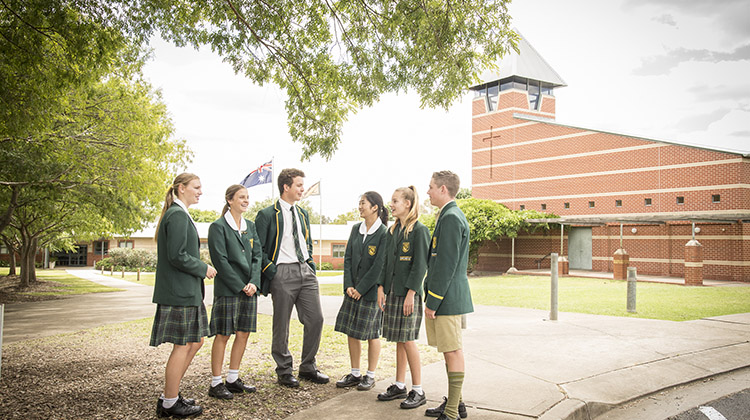Student voice identifies effective teaching

The Headmaster of Macarthur Anglican School, Dr David Nockles, says when he undertook research for his book published in 2012 he was surprised that there was very little research that listened to student voice.
“When I undertook a literature review for my research, I was surprised to find that there were no major research studies that asked students their views on effective teaching and what made a good teacher.
“Both my quantitative, but particularly my qualitative, research using focus groups of students showed me that young people could easily discern that an ideal teacher should marry having good technical skills and understanding their students.
“And I couldn’t agree more. While technically skilled teachers are important, it is the caring teachers who were considered of greatest importance in an effective school. What was most fascinating is that the role of caring teachers became increasingly important as the students progressed through their schooling,” said Dr Nockles.
“Technically good teachers can teach to allow students to pass exams, but the students won’t remember beyond their exams. We need technical teachers who drive academic rigour, but they need to have warmth. A well-trained teacher with in-depth knowledge must be able to bring their subject alive.
“For lifelong learning, teachers need to engage with their students emotionally and intelligently, to encourage them to think deeply and be creative, and marry this with knowledge of content,” said Dr Nockles.
Macarthur Anglican School Dean of Studies, Kylie Elling, agrees and says that they regularly survey students, parents and teachers to ask them their opinions on a variety of issues. The school leadership team then receives in-depth results analysis from an independent research company, which drives strategic planning.
“Student voice is very important. We ask students to identify effective teachers and more importantly to identify ‘what do they do or what strategies they use to make them think that?’. We don’t want to assume we know why they connect with and respect their teachers.
“Teachers much have a good rapport with each student. It is important they have a ‘hook’ for each student that assists in building a connection and in turn get to know them, not just academically. If you’re just empathetic and understanding without in depth content knowledge then you lose the depth of teaching and learning that is required. Building a strong rapport with a student comes first – without rapport, the content is often lost,” said Mrs Elling.
Secondary English teacher at Macarthur Anglican, Hayley Tuft, says her focus is firmly on building rapport with her students and getting to know them. “We still learn about English and cover the content of the curriculum, but I place a lot of importance on the pastoral care of the students, because if they don’t feel safe and secure, it is a barrier to their learning.
“I regularly invite my students to send me their ‘brutally honest’ feedback via Google forms. I also ask them to contact me if they have any issues. My classroom has a very relaxed atmosphere and I encourage every student to contribute,” said Mrs Tuft.
Macarthur Anglican School has more than 900 students across Transition (Pre-Kindergarten) to Year 12.
For more information contact Macarthur Anglican School at http://www.macarthur.nsw.edu.au/contact.